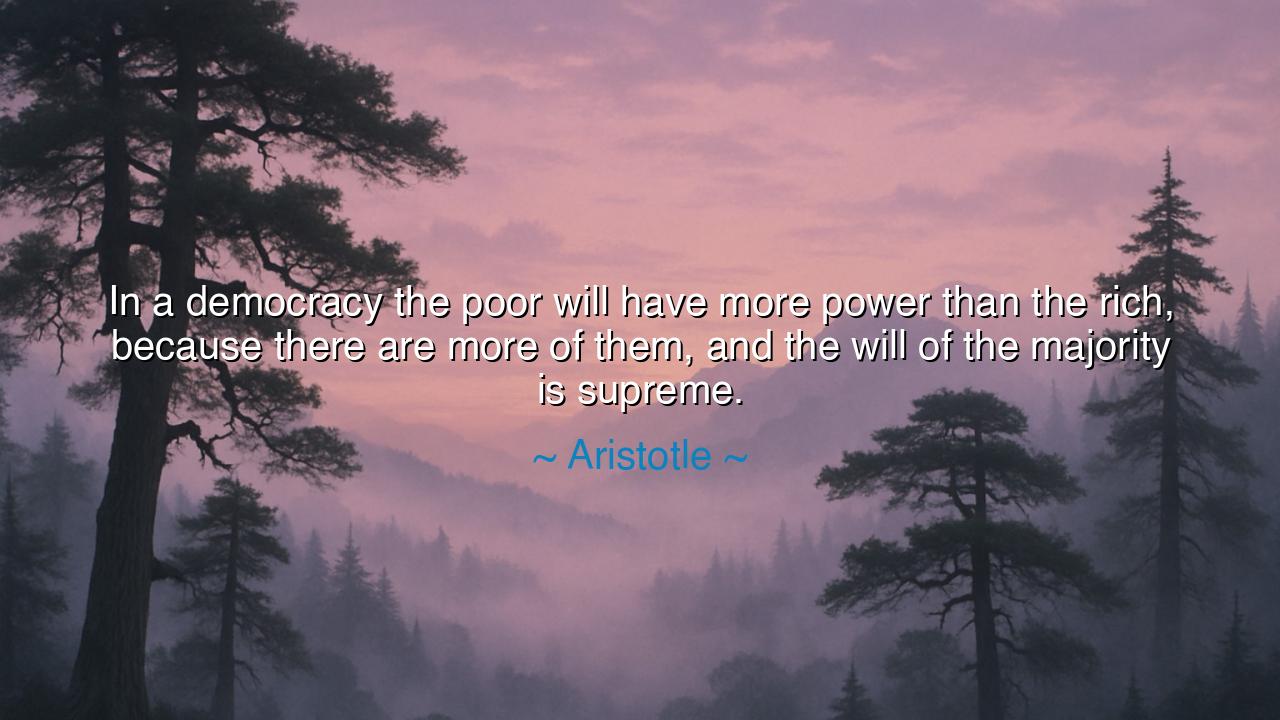
In a democracy the poor will have more power than the rich
In a democracy the poor will have more power than the rich, because there are more of them, and the will of the majority is supreme.






In these profound words, Aristotle contemplates the nature of democracy and the distribution of power among the people. He observes that in a truly democratic system, the poor—not by wealth, but by number—hold greater influence than the rich, because the majority determines the course of governance. Aristotle’s insight reveals the enduring tension between numerical strength and material advantage, showing that in democracy, authority is grounded not in fortune, but in the collective will of the citizens.
The origin of this reflection lies in Aristotle’s extensive study of the polis in ancient Greece, where he witnessed firsthand the interplay of social classes and political structures. In his seminal work Politics, he examined the strengths and weaknesses of governments, analyzing how societies balance the interests of the few and the many. His statement captures the democratic principle that legitimacy derives from consent and representation, and that power ultimately rests with those who can unite as a collective force.
History provides compelling examples of this principle in action. Consider the reforms of Solon in Athens, who expanded political participation to include the lower classes. By empowering the poorer citizens through voting rights and legal reforms, Solon demonstrated Aristotle’s insight: numerical superiority in a democracy ensures that policies reflect the interests of the majority, even when wealth is concentrated in the hands of a few. The voice of the many can shape law and society more profoundly than the wealth of the elite.
Aristotle’s words also illuminate the moral and ethical dimensions of governance. Democracy is not merely a counting of votes, but a recognition that each citizen’s voice matters, and that collective decisions embody the values and will of the populace. When the poor exercise power responsibly, they safeguard fairness, justice, and equality, counterbalancing the influence of the rich. In this sense, democracy becomes both a practical and moral mechanism for achieving social harmony.
Ultimately, this quote is a meditation on justice, representation, and the sovereignty of the majority. Aristotle teaches future generations that the strength of a democracy lies in the unity and agency of its citizens, not in the wealth of the few. Let this wisdom endure: in the governance of men, numbers can outweigh riches, and the will of the majority serves as both shield and compass, guiding societies toward balance, equity, and the flourishing of the polis.






AAdministratorAdministrator
Welcome, honored guests. Please leave a comment, we will respond soon